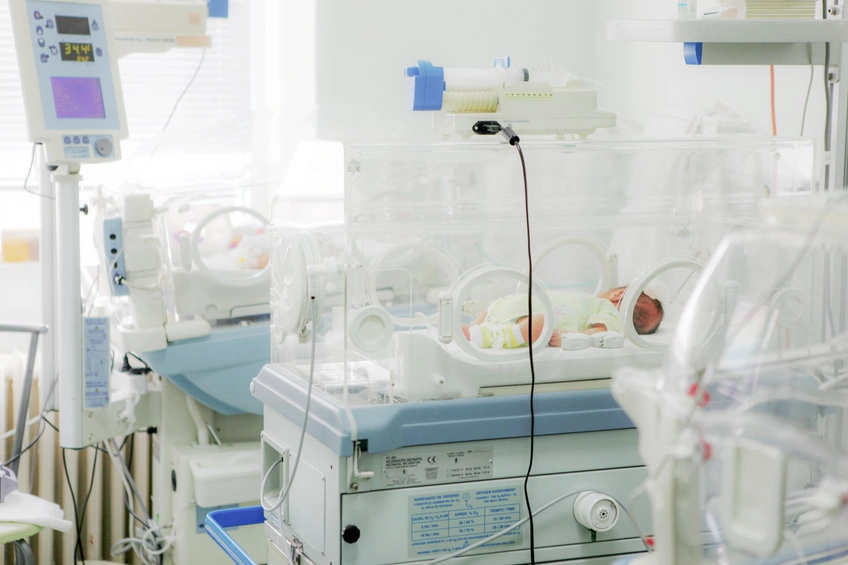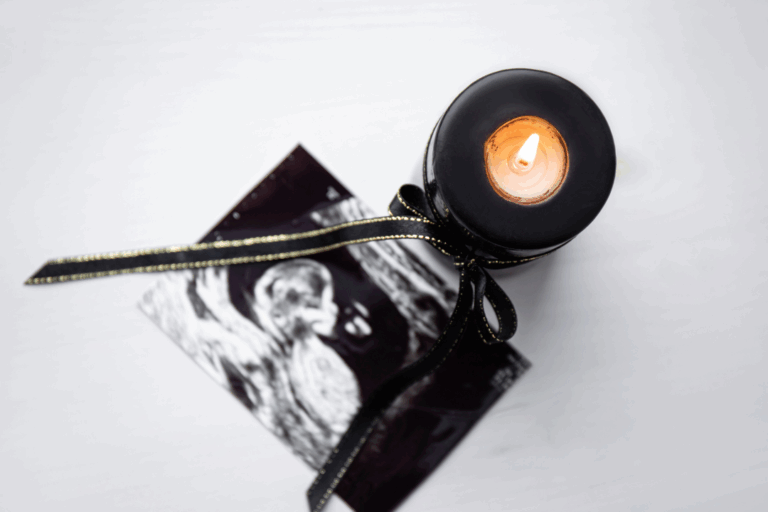The sensory world of the neonatal unit is very different from the womb. The womb was the ideal sensory environment for your baby but if your little one is born prematurely, it’s important to acknowledge that the neonatal unit is far from the calming sensory world your little one was accustomed to.
Take time to look around the neonatal unit and you will pick up on all the ways it differs from the womb world and in what ways it is unsettling for her.
Touch
Your prem baby has a fully developed sense of touch and can perceive both soothing and painful interventions. She can feel changes in temperature and is especially sensitive to light touch. Deep, still, containing touch is calming for your premature baby and light touch is disorganizing.
Unlike the soothing deep, constant skin-to-skin touch of the uterine walls, your baby has to deal with disconcerting touch in the neonatal unit:
- No physical boundaries to make her feel contained
- Changes in temperature
- Light touch of interventions such as changing monitors and nappies
- No skin-to-skin sensation, even her hands don’t come into contact with her own body much
- Painful interventions such as putting in a tube or line hurt your prem baby
Sight
If your prem baby is born before 26 weeks, her eyelids may still be fused but will open shortly thereafter. By 32 weeks your prem baby will be able to see and track a light but she cannot close her eyes intentionally nor can her pupils constrict, to limit the amount of light she takes in. Bright lights and contrasting colours are disconcerting for your premature baby.
In contrast to the muted, dark and visually soothing world of the womb, the neonatal unit is:
- Bright
- Visually alerting with contrasting colours and patterns
- Visually changing constantly – one minute the incubator may be dimmed, such as when your baby is not being attended to but when a nurse comes over to change a line or monitor your baby she will light up the incubator very brightly to see what she is doing
Sound
Your prem baby can hear and respond to sounds. She prefers subdued sounds and is upset by loud and varied sounds. In the womb, the quiet continuous sounds are rarely above 72 decibels and are accompanied by calming vibrations. The sounds of the womb are the consistent, white noise sounds naturally made by your body, such as the gushes, gurgles and beats and rhythms of your body.
In the neonatal unit the sounds are far from these calming sounds:
- The alarms and talking in the neonatal unit vary between 60 and 90 decibels and can even rise to 120 decibels
- Examples of sounds in the neonatal unit that go over 70 decibels and therefore disrupt your prem baby are: people talking in raised voices, a monitor alarm, telephone ring, tapping the incubator, closing metal cabinet doors, crying of other babies, closing the Perspex porthole of the incubator.
Movement & gravity
Your prem baby can feel the effect of gravity and movement. In the last trimester, your baby would under normal circumstances invert in the womb and turn head down in preparation for birth. This head-down position provides intense vestibular input. In addition to the intense input of the head down position, your baby experiences continuous lulling and rocking movements of the womb as well as the sensation of being able to move without the full effect of gravity because water decreases the effect of gravity. When your baby moves, her movements are practiced against the resistance of the womb walls. This vestibular input, as well as the ability to move against gravity and with resistance, is essential for the development of muscle tone. In the incubator:
- Your prem baby is very still and does not experience the normal lulling rocking and subtle movements of the womb
- At birth, your prem baby’s muscle tone is extremely low and she is not protected from gravity by being positioned in flexion like in the womb or by the water that contains her little movements in utero
- When your prem baby lies on her back, her arms and legs fall outwards similar to a frog as she does not have the muscle tone to resist gravity
Smell & taste
Your premature baby can smell and taste scents and flavours. In utero, she responds favourably to sweet flavours. Your prem baby is very sensitive to smells in the neonatal unit:
- Your baby’s skin is being cleaned with strong-smelling alcohol swabs before inserting a drip or tube
- The cleaning agents used to keep the neonatal unit clean are very strong smelling
- Each time a person handles your baby they will have cleaned their hands with strong-smelling antiseptic soap and alcohol spray
Each individual sensory input in the neonatal unit is potentially overwhelming for your newborn, however, in combination, the sensory input has the ability to shift your baby up a state and make her feel stressed and disorganized.




